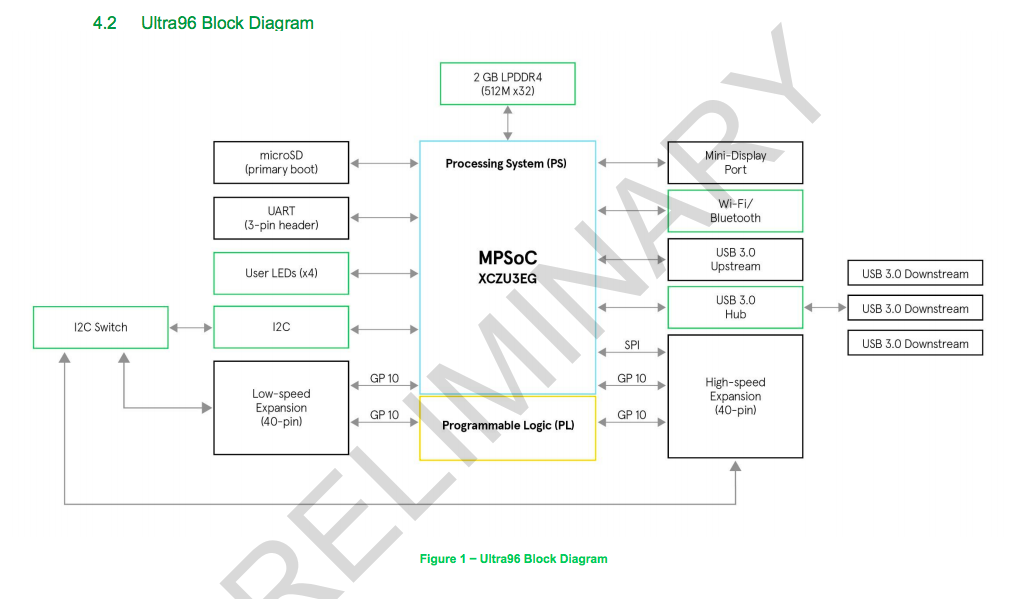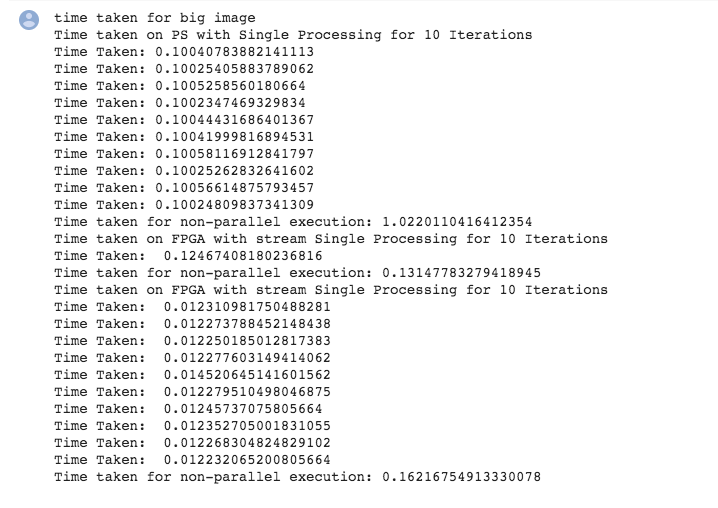Multiprocessor CA Updates
Objective
-Algorithms Ran on the FPGA
-
Gaussian Blur
-
Sobel Filter
-Types of Processing
-Single or Serial Processing
-Multi-processing
Images used
- Big Image:
- Resolution: 803 X 1200


- Small Image
- Resolution: 192 x 192
Plan 1- Approach planned to take
- Use PYNQ- Link-
PYNQ is an open-source project from Xilinx® that makes it easy to design embedded systems with Xilinx Zynq® Systems on Chips (SoCs).
Using the Python language and libraries, designers can exploit the benefits of programmable logic and microprocessors in Zynq to build more capable and exciting embedded systems.
- Started with the edge detection algorithm: Materials found
- Most papers have preferred using solbel filters
- Can be used via scipy library in python
Architecture

Board Used-Ultra 96 FPGA
- List of Features The Ultra96 Developer Kit supports the following features:
- Zynq UltraScale+ MPSoC ZU3EG SBVA484
- Storage o Micron 2 GB (512M x32) LPDDR4 Memory

PYNQ-Overlays
- Overlays, or hardware libraries, are programmable/configurable FPGA designs that extend the user application from the Processing System of the Zynq into the Programmable Logic
- PYNQ provides a Python interface to allow overlays in the PL to be controlled from Python running in the PS. FPGA design is a specialized task that requires hardware engineering knowledge and expertise. PYNQ overlays are created by hardware designers and wrapped with this PYNQ Python API.
- Overlay used in the project: OpenCV overlay- link
Results Obtained- Big Image

Title Text
Remaining Work
- Try for an even larger image
- Find out if it's possible to tinker with an overlay
Breaking down the problem
- Instead of using large NNs, try different types of CNN filters instead
- Edge Detection-Kernel-solbel
- Blurring-Kernels-Gaussian
- For Gaussian materials found
- Wiki Material with code -http://subsurfwiki.org/wiki/Gaussian_filter
deck
By archana iyer
deck
- 836



